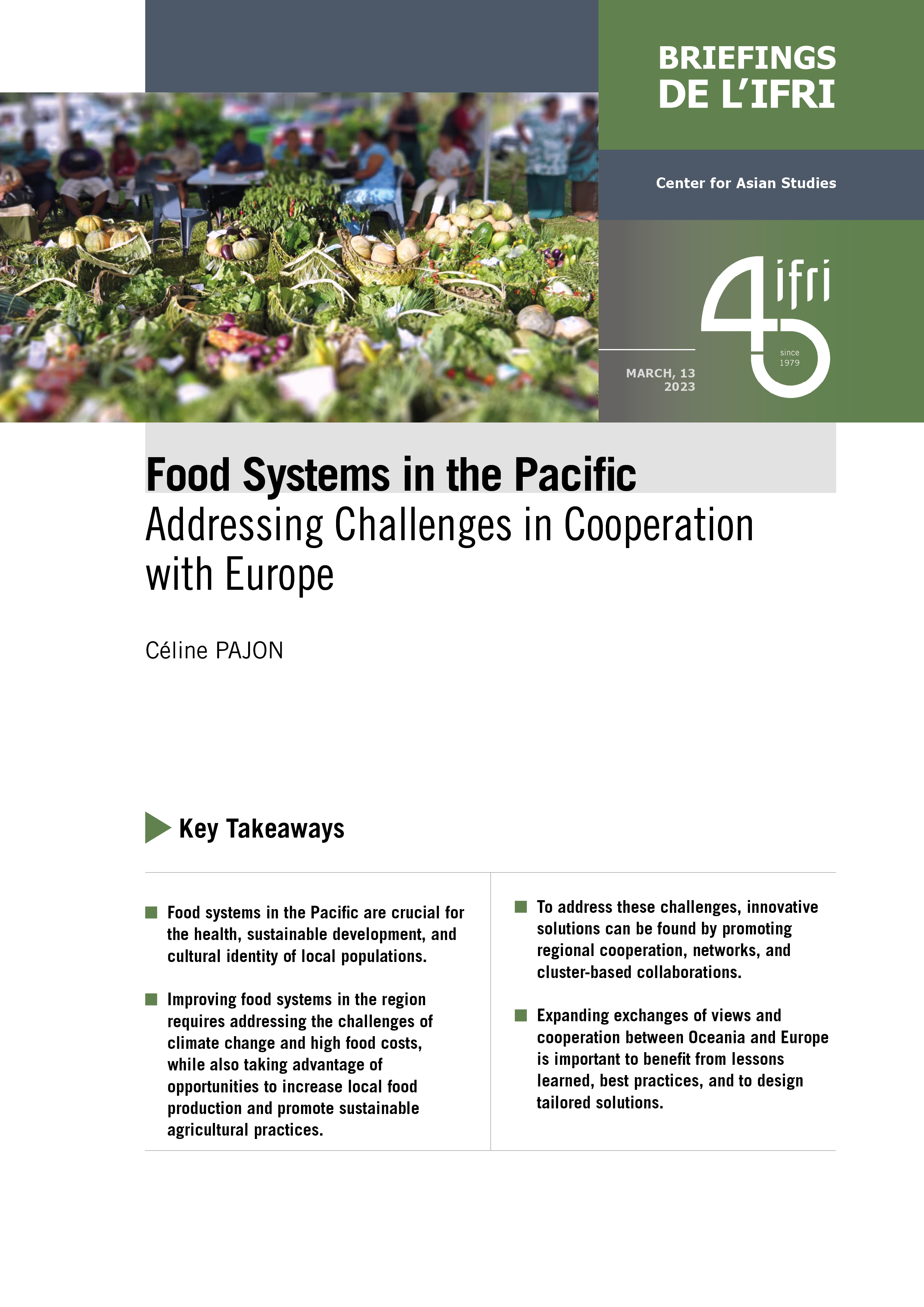Food Systems in the Pacific: Addressing Challenges in Cooperation with Europe

More frequent climate disasters, rising sea levels, the economic fallout of Covid-19 lockdowns, border closures, supply chain constraints, and the global impact of the war in Ukraine have aggravated the challenge of maintaining sustainable and resilient food systems for Pacific Island Countries (PICs).
Food systems in PICs are of great importance due to their impact on the health and well-being of Pacific peoples, local livelihoods, and national economies. Between 50 and 70% of Pacific people depend on agriculture and fishing activities for their livelihoods. The Pacific is home to extensive crop biodiversity, and Pacific countries are developing unique value chains for markets and international supply. However, they also face unique challenges in realizing equitable benefits in the global food system. Additionally, the Pacific needs to tackle issues like malnutrition and non-communicable diseases. Urgent global and local action is needed to manage climate change and other risks and ensure resilient food systems.
Europeans are also confronted with the global food crisis and are actively working with their Pacific partners to find and fund solutions to address current and future risks by investing in local sustainable food systems. This Briefing explains the complex issues at stake regarding food systems in PICs and explores ways to address these challenges, both at the local level and in cooperation with Europeans.
This Briefing is based on discussions that took place during the webinar "Food Security in Times of Crisis: Connecting the Pacific and Europe," organized by the French Institute for International Relations (Ifri)'s Pacific Islands Program in partnership with the Pacific Community (SPC) on December 8, 2022. Contributions from panelists will, therefore, be highlighted.
This Briefing was supported by the Pacific Community (SPC):
Download the full analysis
This page contains only a summary of our work. If you would like to have access to all the information from our research on the subject, you can download the full version in PDF format.
Food Systems in the Pacific: Addressing Challenges in Cooperation with Europe
Related centers and programs
Discover our other research centers and programsFind out more
Discover all our analyses
China’s Strategy Toward Pacific Island countries: Countering Taiwan and Western Influence
Over the past decade, China has deployed a diplomatic strategy toward the Pacific Island Countries (PICs). This strategy pursues two main objectives: countering Taiwan's diplomatic influence in the region and countering the influence of liberal democracies in what Beijing refers to as the "Global South."

Opening up the G7 to South Korea to Address Contemporary Global Challenges
The G7’s global influence has diminished as powers like China reshape international governance through initiatives such as BRICS and the Shanghai Cooperation Organisation (SCO). With the G7 now representing just 10 per cent of the world’s population and 28 per cent of global GDP, its relevance is increasingly questioned.
Expanding SPDMM as a pivotal institution in the Pacific – A French perspective
The South Pacific Defence Ministers’ Meeting (SPDMM) is the only forum that brings together defense ministers from the wider South Pacific — including Chile, which is hosting it for the first time. This heterogeneous group of countries with varying resources, capacities, and interests — Australia, Chile, Fiji, France, New Zealand, Papua New Guinea (PNG), and Tonga — are united by their shared determination to strengthen cooperation on maritime security and humanitarian assistance and disaster relief (HADR) activities.
EU’s Derisking From China: A Daunting Task
With economic security as a major concern, the EU has recently turned to “derisking” from China. The EU strategy entails reducing critical dependencies and vulnerabilities, including in EU supply chains, and diversifying where necessary, while recognizing the importance and need to maintain open channels of communication.











